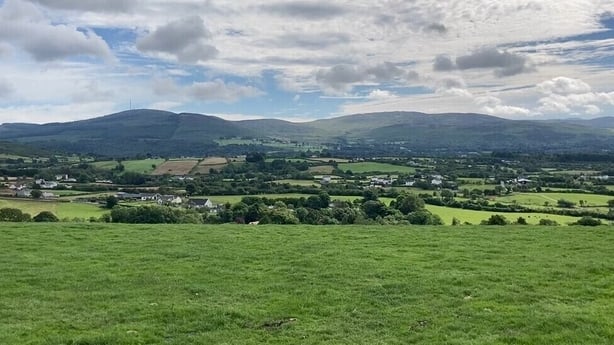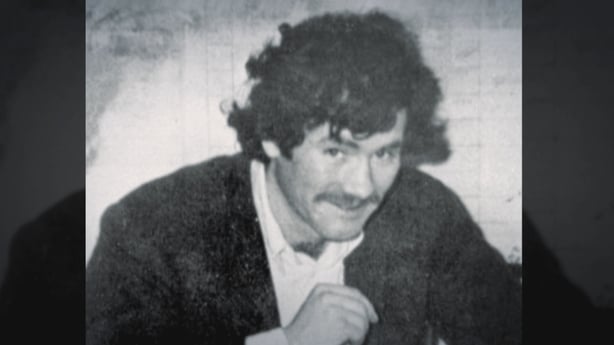A search in Co Louth for Robert Nairac, a British soldier murdered and secretly buried by the IRA almost 50 years ago, has ended without success.
Experts had been searching a small area at Faughart, north of Dundalk, since the end of August.
It was carried by the Independent Commission for the Location of Victims' Remains (ICLVR).
The announcement that it was over was made by joint commissioners Rosie Dalton and Tim Dalton.
"It is bitterly disappointing that the search for Robert Nairac's remains has ended without success and our thoughts are with the Nairac family, in particular his sisters Rosemonde and Gabrielle," they said.

"The investigation and search team did everything they could to bring about a successful outcome but clearly more information is needed and we would appeal to anyone who has information to bring it to the Commission.
"They can do so in the knowledge that their identity and any information provided will be treated in the strictest confidence".
Captain Nairac - an officer in the Grenadier Guards - was taken away and shot after being confronted outside a pub near the village of Drumintee, in south Armagh in May 1977.
The 29-year-old soldier was working undercover and had gone into the pub that night in an attempt to gather intelligence.
The dig for his remains took place a short distance from where he was abducted.
Capt Nairac is one of the so-called 'Disappeared’, a group of 17 people who were kidnapped and murdered by republicans during the Troubles and whose bodies were buried in secret.
Read more: Prime Time Rewind: What happened to Robert Nairac?
Thirteen of the bodies have now been recovered.
The lead investigator for the ICLVR Jon Hill, made a fresh appeal for information.
"We were searching a relatively small area, less that one acre, and we did so because the information we had was credible.
"The fact that we haven’t found Robert Nairac’s remains does not change that.
"It is our experience from other searches that while we have been in the right area the precise location has not been found first time round.
"There is always a concern that once it is known that we are starting a search in a particular area that it is assumed that we have all the information that we need and people who could help may think there is no need for them to talk to us.
"Nothing could be further from the truth.
"Anyone who has any information that might help should come forward and as the Commissioners have made clear that information and their identity will be treated in the strictest confidence".

The Commission had not given the precise location of the dig for him because it is on private land and the landowner had asked that it not be revealed.
Mr Hill said neither the landowner nor the tenant farmer who leases the land had any connection with the decision to conduct the search.
The site of the dig is within an area of significant archaeological interest and is dotted with protected sites.
The Commission was in touch with the National Monuments Service which has an interest in the wider area around the Hill of Faughart which was the location of a 14th century battle.
In 1979, Capt Nairac was posthumously awarded one of Britain's highest honours, the George Cross.
Several years ago, an award of £20,000 was offered for information leading to the recovery of his body.
Seven men were charged in connection with the 1977 killing in the 18 months after the incident.
Two were convicted of murder, one of manslaughter, one with kidnap and one with withholding information.
In 2011, an eighth man was acquitted of the murder having been charged after returning from the United States where he had spent several decades.
Capt Nairac is one of four remaining members of the ‘Disappeared’ whose bodies have not been recovered.
The others are Columba McVeigh, Joe Lynskey, and Séamus Maguire.
The case of the missing British army captain has been a high profile one for years. Speculation about the disposal of his body led to lurid stories.
There were also allegations that he was linked to both republican and loyalist attacks along the border in the mid-70s including some of the most notorious killings of the Troubles.
A former head of the ICLVR Geoff Knupfer said he believed this was part of the reason so little information had been forthcoming about the whereabouts of his body.
Mr Knupfer later provided information which he said showed that Capt Nairac had been elsewhere when some of these high-profile murders had taken place.
The Commission said its only interest in the case was returning Capt Nairac to his family for a proper burial.







